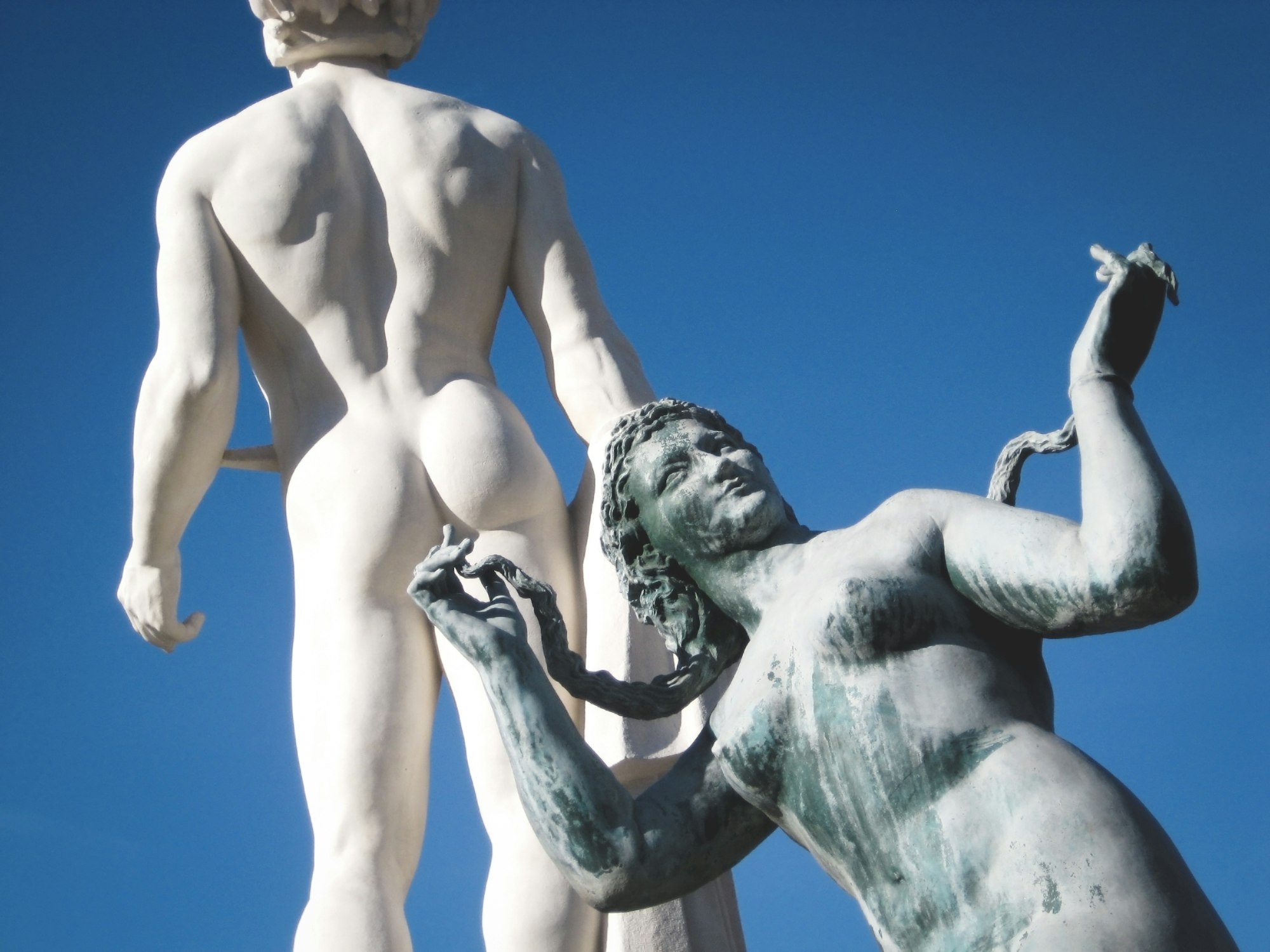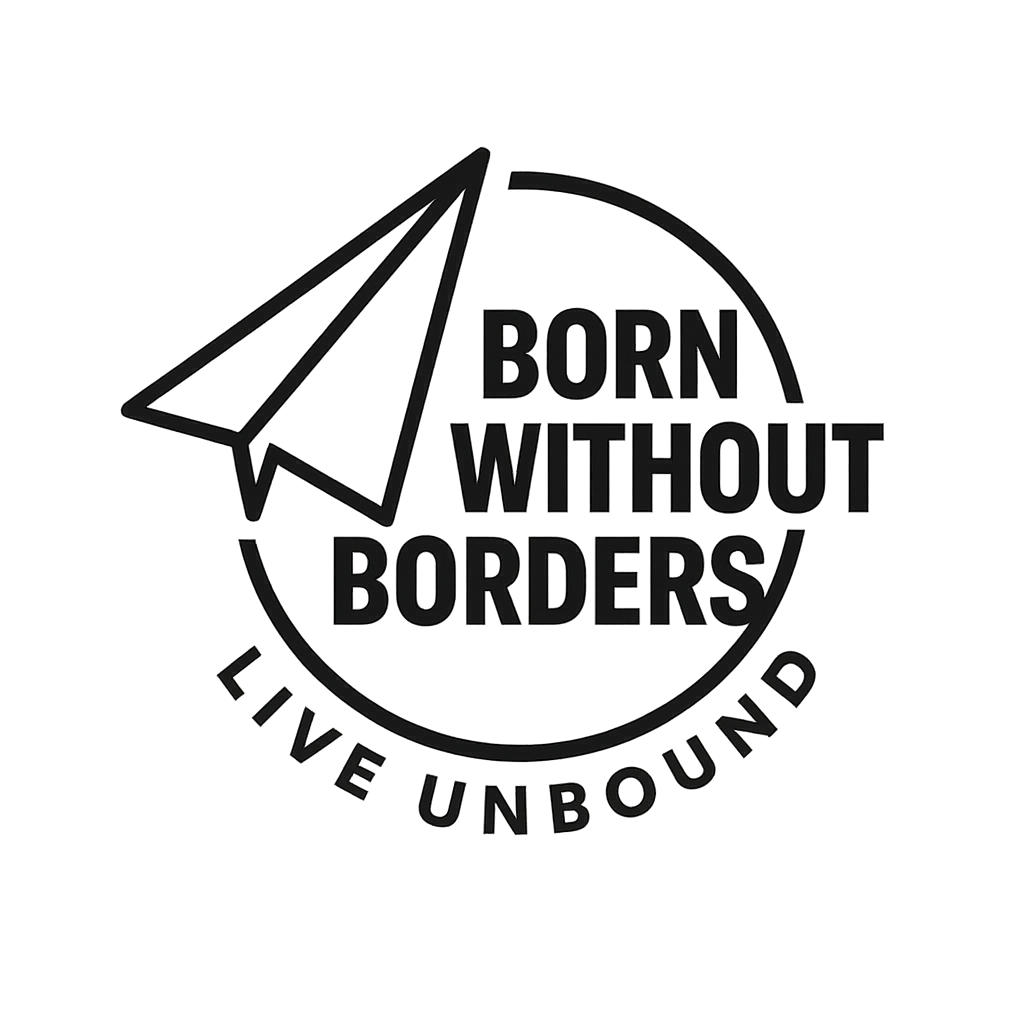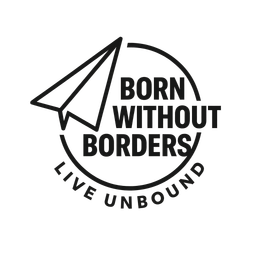Can We Change and Should We?

People will judge your personality based on what you watch and eat, how you dress and move, where you go and don’t go, lo que sea. But does this have anything to do with who you truly are?
In my podcast episode “Is There an Authentic Self?” Dr. Benjamin Cheung, a leading expert in genetic essentialism, and I agree that no single authentic self is stable with you for the entirety of your life. It might be the case for some people, but many of us must develop an identity that works for us in that environment.
Some might change their ways in fear of being ostracized or, in some cases, killed. Others might change because curled hair and getting a series of infections from Claire’s didn’t make us as cool as the pop stars we saw on MTV.
Nine-year-old me…

Yet, some parts of our personality are pretty stable throughout our lifetime. And that’s where The Big Five comes in.
Any test that categorizes you as type A or type B or INFJ or INFP or something along those lines is bullshit. You don’t belong in a category. You are too complex. You are human.
However, just because personality can’t (and shouldn’t) be categorized doesn’t mean it can’t be measured. For The Big Five, researchers used the dictionary to pull together all the ways to describe behaviour (there were thousands), then clustered them (for example, someone gregarious is also sociable). They kept clustering until they got five major ones, all of which are on a dimension.
1. Extraversion (Surgency): Gregariousness, activity level, assertiveness, warmth, excitement seeking, positive emotions.
2. Neuroticism (Emotional Stability): Anxiety, depression, vulnerability, impulsiveness, self-consciousness, anger/hostility.
3. Conscientiousness (Dependability): competence, methodicalness, dutifulness, achievement-striving, self-discipline, deliberation.
4. Agreeableness: trust in others, altruism, modesty, compliance, straightforwardness, tender-mindedness.
5. Openness to Experience (Openness/Intellect, Culture): fantasy, aesthetics, feelings, ideas, actions, values.
These scores don’t change much throughout a person’s lifetime. Yes, you might have been more extroverted during your teens, but your rank order (maintaining your position on a trait relative to others) is likely to stay the same.
But does The Big Five hold up across cultures?
First, you need to keep the reference-group effect in mind. People evaluate themselves (especially conscientiousness) by comparing themselves to local norms/the reference group. For example, in Valencia, Spain, where shoe-print-ridden floors, showing up late (or not showing up) without warning, and cutting someone off mid-sentence is normal, I feel like the most conscientious person around. When I lived in Hanoi, Vietnam, where people handed me goods with both hands, found time to guide me within their busy work schedule, and made sure everything was clean even in el culo del mundo, I felt like a barbarian.
The reference group can affect where your score lands on the dimension, but McCrae and colleagues collected personality profiles of 12,156 people from 51 different cultures, and overall, these traits seem universal. The largest difference seen is in extraversion. North Americans, Australians, and Europeans scored slightly higher than Asians and Africans.
However, just because The Big Five is internationally applicable doesn’t mean there aren’t better personality dimensions for specific cultures.
- Using the lexical method to identify traits in Chinese, factor analysis revealed four dimensions: Dependability, social potency, individualism/accommodation, and interpersonal relatedness. Sure, dependability relates to neuroticism, social potency relates to extraversion, and individualism/accommodation relates to agreeableness, but interpersonal relatedness does not relate to any of the Big Five Personality Traits.
- Even though the Big Five works in many languages, most studies were in English. Openness to experience is the trait that emerges least constantly in studies conducted in other languages.
- An investigation of 11 different language groups in South Africa revealed nine underlying factors, some of which overlapped with the Big Five, but other factors, such as integrity and relationship harmony, did not.
So, are there other dimensions we should include in The Big Five?
Another model that might be worth considering is the HEXACO Model, which includes a 6th factor that every culture (maybe not Wall Street or Cryptobro culture) finds important—honesty and humility. Low honesty-humility is associated with The Dark Triad (Narcissism, psychopathy, Machiavellianism) and The Dark Tetrad (Narcissism, psychopathy, Machiavellianism, sadism). In other words, serial killers, billionaires, politicians, and the like.
That was a joke, of course. It’s not fair to compare billionaires to serial killers—serial killers don’t get rewarded for their crimes. This brings us to humour. Some people criticize the Big Five for not factoring in humour, which is integral to describing someone’s personality. However, that brings us down a whole new rabbit hole.

Yet, let’s put all these Big Five flaws to the side and look at how these personality dimensions actually affect our lives. For example, open people tend to get married later and explore more relationships, agreeable people make less money, conscientious people tend to live longer, and neurotic people have more bad things happen to them.
You might want to change your personality to explore more, make more, live longer, o cualquier otra cosa, but how?
Aprender mas idiomas can make you more open. The same goes for taking psychedelics, which, by the way, I’m willing to guide you in. No, I’m not a shaman, but I grew up in Vancouver—that makes me just as much of an expert, right?
You can also shift your score on the dimension through exposure and practice. Partaking in more social events can make you more extroverted, meditation can make you less neurotic, and strict regimes can make you more conscientious.
But should you change?
Whether it’s an ecosystem or society, diversity is the key to survival. Open people might challenge conventions and create art that feeds our souls, but those who score lower on this dimension keep society running and put food on the table. Highly conscientious people might be dutiful and disciplined, but we need people with low conscientiousness to take risks and push society forward. Extraverts are often stronger leaders, but introverts are better listeners. Highly agreeable people can excel in conflict resolution, but less agreeable people are better at negotiating sales.
Even neuroticism, the trait we most often try to change, is vital to keep us progressing as a species. Neuroticism can contribute to better performance on effort-based tasks, higher vigilance concerning health, and can result in more insightful problem-solving.
As a species, we can’t all stay calm and carry on. Once in a while, we need people to worry and freak the fuck out to keep the happy-go-lucky individuals in check. There is beauty in the darkness as long as we confront it. The difficult aspects of our personality are not to be suppressed but explored. Our lifelong journey of self-discovery is a puzzle piece in our shared humanity and consciousness.
Always remember, we need you. No matter who you are.
Want to take the Big Five Test and chat about our results?
Free test: bigfive-test.com
If you believe in research and writing that break down borders, foster cross-cultural understanding, and inspire people to live unbound, consider becoming a paid subscriber to Born Without Borders.
All my work is published on Ghost, a decentralized, non-profit, and carbon-neutral platform—free from VC funding and the grip of technofeudal lords.
I don’t use algorithms to hijack your attention.
My work can only exist if you share and support it.
- Become a Paid Member: Get access to all exclusive content and potentially included access to certain courses/workshops and directly support this work for just $5/ month or $50 / year.
- Become a Founding Member: For those who want to make sure I stay off the platforms causing mental illness, polarization, and a technofeudal shit show. Your deeper support makes all the difference for $30/ month or $300 / year.
Need Specialized Coaching?
- Unlock Your Authentic Voice (Across Cultures & Systems): If you're a multilingual professional or "cultural inbetweener" who feels unseen or misread, let's refine your English for nuance, confidence, and true self-expression.
Affiliate Links for Global Citizens
- Home Exchange: Trade homes, not hotel bills. Live like a local anywhere in the world.
- Wise: Send money across borders without losing your mind (or half your paycheck in fees).
- Preply: Make a living teaching people worldwide.
- Flatio: A more ethical version of Airbnb.


Member discussion